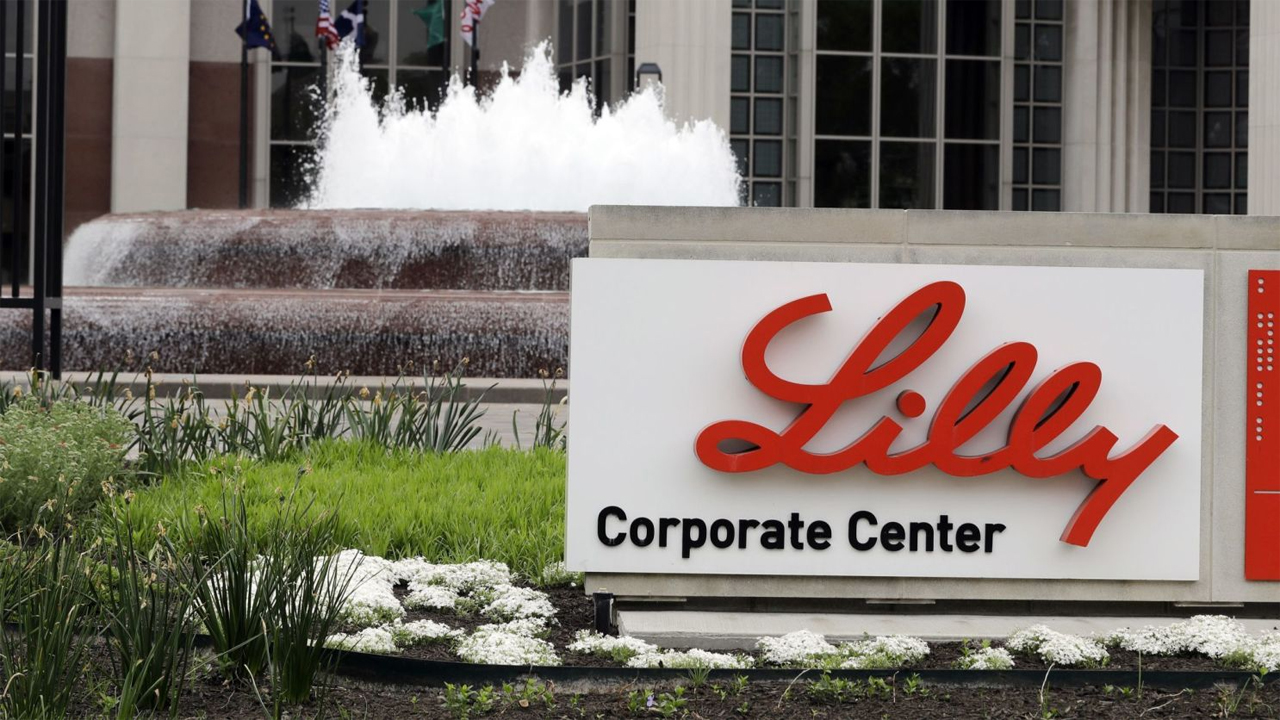Basilea Pharmaceutica Ltd. announced today that it has entered into a clinical trial collaboration and supply agreement with Eli Lilly and Company for the use of the anti-VEGFR2 antibody ramucirumab (CYRAMZA®) in the ongoing multi-cohort phase 1/2 study FIDES-03 with the FGFR inhibitor derazantinib in advanced gastric (stomach) cancer patients with FGFR genetic aberrations. Basilea is the sponsor of the study and Lilly will collaborate on clinical aspects and provide clinical supply of ramucirumab.
Ramucirumab is an anti-angiogenic therapy approved for the treatment of various cancers, including the second-line treatment of advanced gastric cancer as a single agent or in combination with paclitaxel. The FIDES-03 study will assess the efficacy and safety of derazantinib as monotherapy and combination therapy with ramucirumab and paclitaxel or with Roche’s PD-L1 checkpoint inhibitor atezolizumab.
Dr. Marc Engelhardt, Chief Medical Officer, said: “The agreement with Lilly allows us to investigate the potential of derazantinib combined with ramucirumab and paclitaxel, which is the standard of care in the second-line treatment of gastric cancer. Derazantinib inhibits FGFR1-3 kinases but also inhibits CSF1R and VEGFR2. Its unique kinase inhibition profile may complement the anti-angiogenic effects of ramucirumab in the treatment of patients with advanced gastric cancer. Exploring combination therapies in order to strengthen the clinical evidence on the differentiation of derazantinib versus other FGFR inhibitors is one important element of our development strategy for the compound.”
Gastric cancer is the fifth most common cancer worldwide and the third most lethal cancer type. Median survival rarely exceeds twelve months and the five-year survival is less than 10%. Basilea estimates that there are approximately 190,000 new cases of gastric cancer per year in total across the top 5 EU countries, Japan and the U.S. FGFR genetic aberrations have been observed in about 10% of gastric cancers.
About derazantinib
Derazantinib is an investigational orally administered small-molecule FGFR inhibitor with strong activity against FGFR1, 2, and 3. FGFR kinases are key drivers of cell proliferation, differentiation and migration. FGFR genetic aberrations, e.g. gene fusions, mutations or amplifications, have been identified as potentially important therapeutic targets for various cancers, including intrahepatic cholangiocarcinoma (iCCA), urothelial, breast, gastric and lung cancers. In these cancers, FGFR genetic aberrations are found in a range of 5% to 30%.
Derazantinib also inhibits the colony-stimulating-factor-1-receptor kinase (CSF1R). CSF1R-mediated signaling is important for the maintenance of tumor-promoting macrophages and therefore has been identified as a potential target for anti-cancer drugs. Pre-clinical data has shown that tumor macrophage depletion through CSF1R blockade renders tumors more responsive to T-cell checkpoint immunotherapy, including approaches targeting PD-L1/PD-1.
Derazantinib has demonstrated antitumor activity and a manageable safety profile in a previous biomarker-driven phase 1/2 study in iCCA patients, and has received U.S. and EU orphan drug designation for iCCA. Basilea is currently conducting three clinical studies with derazantinib.
The first study, FIDES-01, is a registrational phase 2 study in patients with inoperable or advanced iCCA. It comprises one cohort of patients with FGFR2 gene fusions and another cohort of patients with mutations or amplifications. The second study, FIDES-02, is a phase 1/2 study evaluating derazantinib alone and in combination with Roche's PD-L1-blocking immune-checkpoint inhibitor, atezolizumab, in patients with advanced urothelial cancer, including metastatic, or recurrent surgically unresectable disease, expressing FGFR genetic aberrations.
The third study, FIDES-03, is a phase 1/2 study evaluating derazantinib alone and in combination with Lilly’s anti-VEGFR2 antibody ramucirumab and paclitaxel or with Roche’s PD-L1 checkpoint inhibitor atezolizumab in patients with advanced gastric cancer with FGFR genetic aberrations. Basilea in-licensed derazantinib from ArQule Inc., a wholly-owned subsidiary of Merck & Co., Inc., Kenilworth, N.J., U.S.A.
About Basilea
Basilea Pharmaceutica Ltd. is a commercial-stage biopharmaceutical company, focused on the development of products that address the medical challenges in the therapeutic areas of oncology and infectious diseases. With two commercialized drugs, the company is committed to discovering, developing and commercializing innovative pharmaceutical products to meet the medical needs of patients with serious and life-threatening conditions. Basilea Pharmaceutica Ltd. is headquartered in Basel, Switzerland and listed on the SIX Swiss Exchange (SIX: BSLN). Additional information can be found at Basilea's website www.basilea.com.
Disclaimer
This communication expressly or implicitly contains certain forward-looking statements, such as "believe", "assume", "expect", "forecast", "project", "may", "could", "might", "will" or similar expressions concerning Basilea Pharmaceutica Ltd. and its business, including with respect to the progress, timing and completion of research, development and clinical studies for product candidates. Such statements involve certain known and unknown risks, uncertainties and other factors, which could cause the actual results, financial condition, performance or achievements of Basilea Pharmaceutica Ltd. to be materially different from any future results, performance or achievements expressed or implied by such forward-looking statements. Basilea Pharmaceutica Ltd. is providing this communication as of this date and does not undertake to update any forward-looking statements contained herein as a result of new information, future events or otherwise. Derazantinib and its uses are investigational and have not been approved by a regulatory authority for any use. Efficacy and safety have not been established. The information presented should not be construed as a recommendation for use. The relevance of findings in nonclinical/preclinical studies to humans is currently being evaluated

 Basilea announces Clinical Trial Collaboration and Supply Agreement with Eli Lilly and Company for ramucirumab in the ongoing FIDES-03 study with derazantinib in gastric cancer.
Basilea announces Clinical Trial Collaboration and Supply Agreement with Eli Lilly and Company for ramucirumab in the ongoing FIDES-03 study with derazantinib in gastric cancer.









.jpeg)

.jpeg)










.jpg)




.jpg)

